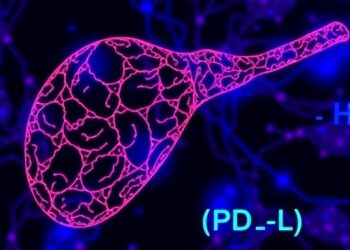Metabolic disorders, like diabetes and osteoporosis, are burgeoning throughout the world, especially in developing countries.
Metabolic disorders, like diabetes and osteoporosis, are burgeoning throughout the world, especially in developing countries.
The diagnosis for these disorders is typically a blood test, but because the existing healthcare infrastructure in remote areas is unable to support these tests, most individuals go undiagnosed and without treatment. Conventional methods also involve labor-intensive and invasive processes which tend to be time-consuming and make real-time monitoring unfeasible, particularly in real life settings and in country-side populations.
Researchers at the University of Pittsburgh and University of Pittsburgh Medical Center are proposing a new device that uses blood to generate electricity and measure its conductivity, opening doors to medical care in any location.
“As the fields of nanotechnology and microfluidics continue to advance, there is a growing opportunity to develop lab-on-a-chip devices capable of surrounding the constraints of modern medical care,” said Amir Alavi, assistant professor of civil and environmental engineering at Pitt’s Swanson School of Engineering. “These technologies could potentially transform healthcare by offering quick and convenient diagnostics, ultimately improving patient outcomes and the effectiveness of medical services.”
Now, We Got Good Blood
Blood electrical conductivity is a valuable metric for assessing various health parameters and detecting medical conditions.
This conductivity is predominantly governed by the concentration of essential electrolytes, notably sodium and chloride ions. These electrolytes are integral to a multitude of physiological processes, helping physicians pinpoint a diagnosis.
“Blood is basically a water-based environment that has various molecules that conduct or impede electric currents,” explained Dr. Alan Wells, the medical director of UPMC Clinical Laboratories, Executive Vice Chairman, Section of Laboratory Medicine at University of Pittsburgh and UPMC, and Thomas Gill III Professor of Pathology, Pitt School of Medicine, Department of Pathology. “Glucose, for example, is an electrical conductor. We are able to see how it affects conductivity through these measurements. Thus, allowing us to make a diagnosis on the spot.”
Despite its vitality, the knowledge of human blood conductivity is limited because of its measurement challenges like electrode polarization, limited access to human blood samples, and the complexities associated with blood temperature maintenance. Measuring conductivity at frequencies below 100 Hz is particularly important for gaining a deeper understanding of the blood electrical properties and fundamental biological processes, but is even more difficult.
A Pocket-Sized Lab
The research team is proposing an innovative, portable millifluidic nanogenerator lab-on-a-chip device capable of measuring blood at low frequencies. The device utilizes blood as a conductive substance within its integrated triboelectric nanogenerator, or TENG. The proposed blood-based TENG system can convert mechanical energy into electricity via triboelectrification.
This process involves the exchange of electrons between contacting materials, resulting in a charge transfer. In a TENG system, the electron transfer and charge separation generate a voltage difference that drives electric current when the materials experience relative motion like compression or sliding. The team analyzes the voltage generated by the device under predefined loading conditions to determine the electrical conductivity of the blood. The self-powering mechanism enables miniaturization of the proposed blood-based nanogenerator. The team also used AI models to directly estimate blood electrical conductivity using the voltage patterns generated by the device.
To test its accuracy, the team compared its results with a traditional test which proved successful. This opens the door to taking the testing to where people live. In addition, blood-powered nanogenerators are capable of functioning in the body wherever blood is present, enabling self-powered diagnostics using the local blood chemistry.
Other researchers on this project include:
- Jianzhe Luo, PhD Candidate, University of Pittsburgh
- Wenyun Lu, PhD Candidate, University of Pittsburgh
- Daeik Jang, Postdoctoral Associate, University of Pittsburgh
- Qianyun Zhang, Civil engineering professor, New Mexico State University
- Mensuan Meng, PhD Candidate, University of Pittsburgh
The paper, “Millifluidic Nanogenerator Lab-on-a-Chip Device for Blood Electrical Conductivity Monitoring at Low Frequency,” (DOI: 10.1002/adma.202403568) was recently published by the journal Advanced Materials.
Journal
Advanced Materials




